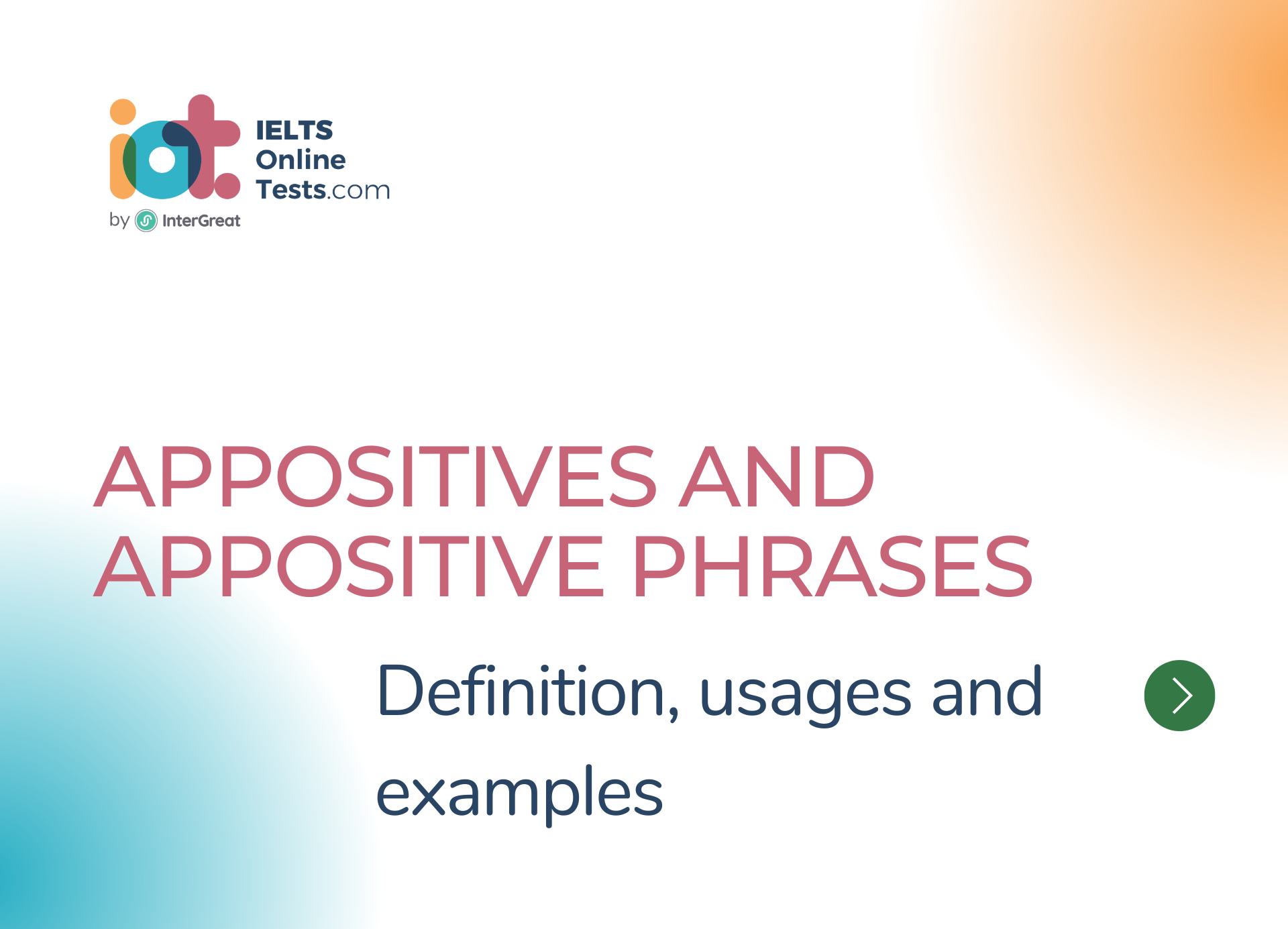
Appositives and Appositive Phrases
Appositives are noun phrases that provide additional information or clarification about a preceding noun or pronoun. They are often used to add detail, rename, or describe the noun or pronoun. Appositives can stand alone as separate phrases or be part of larger appositive phrases.
Here's more information about appositives and appositive phrases:
Appositives:
- An appositive is a noun or noun phrase that comes immediately after and renames or describes another noun or pronoun.
- It provides additional information, clarification, or emphasis on the preceding noun or pronoun.
- Examples:
- "My brother, a talented musician, performed at the concert." (Appositive: "a talented musician")
- "The city, a bustling metropolis, never sleeps." (Appositive: "a bustling metropolis")
- "Anne, my best friend, is coming over for dinner." (Appositive: "my best friend")
Appositive Phrases:
- An appositive phrase is a group of words that includes the appositive along with its modifiers and complements.
- It provides more extensive information and can function as a single unit within a sentence.
- Examples:
- "The car, a shiny red sports car with leather seats, caught everyone's attention." (Appositive phrase: "a shiny red sports car with leather seats")
- "My teacher, an experienced scholar in the field, gave an inspiring lecture." (Appositive phrase: "an experienced scholar in the field")
- "The painting, a masterpiece by Van Gogh, is displayed in the museum." (Appositive phrase: "a masterpiece by Van Gogh")
Placement and Punctuation:
- Appositives are typically placed directly after the noun or pronoun they modify, without any punctuation marks separating them.
- However, if the appositive phrase contains additional punctuation, such as commas, parentheses, or dashes, it may be set off by such punctuation.
- Examples:
- "My sister Jane is a doctor." (No punctuation needed)
- "My friend Tony, a skilled photographer, took amazing pictures." (Commas set off the appositive phrase)
- "His dog—Spike, a playful and energetic Labrador—loves to chase balls." (Dashes set off the appositive phrase)
Appositives and appositive phrases add descriptive detail, specificity, and clarity to sentences. They provide additional information about nouns or pronouns, enhancing the reader's understanding and engagement with the text. Proper placement and punctuation help ensure that appositives are correctly interpreted within the sentence structure.




